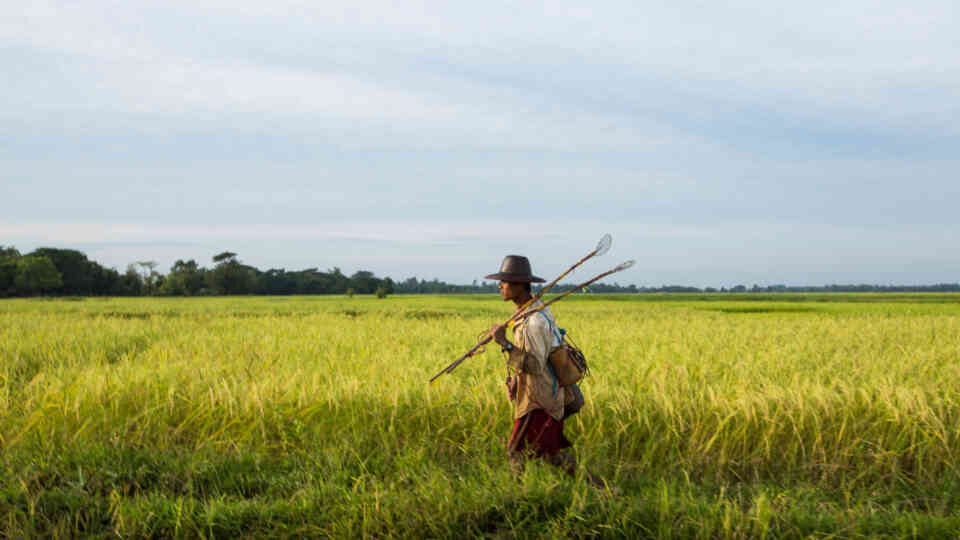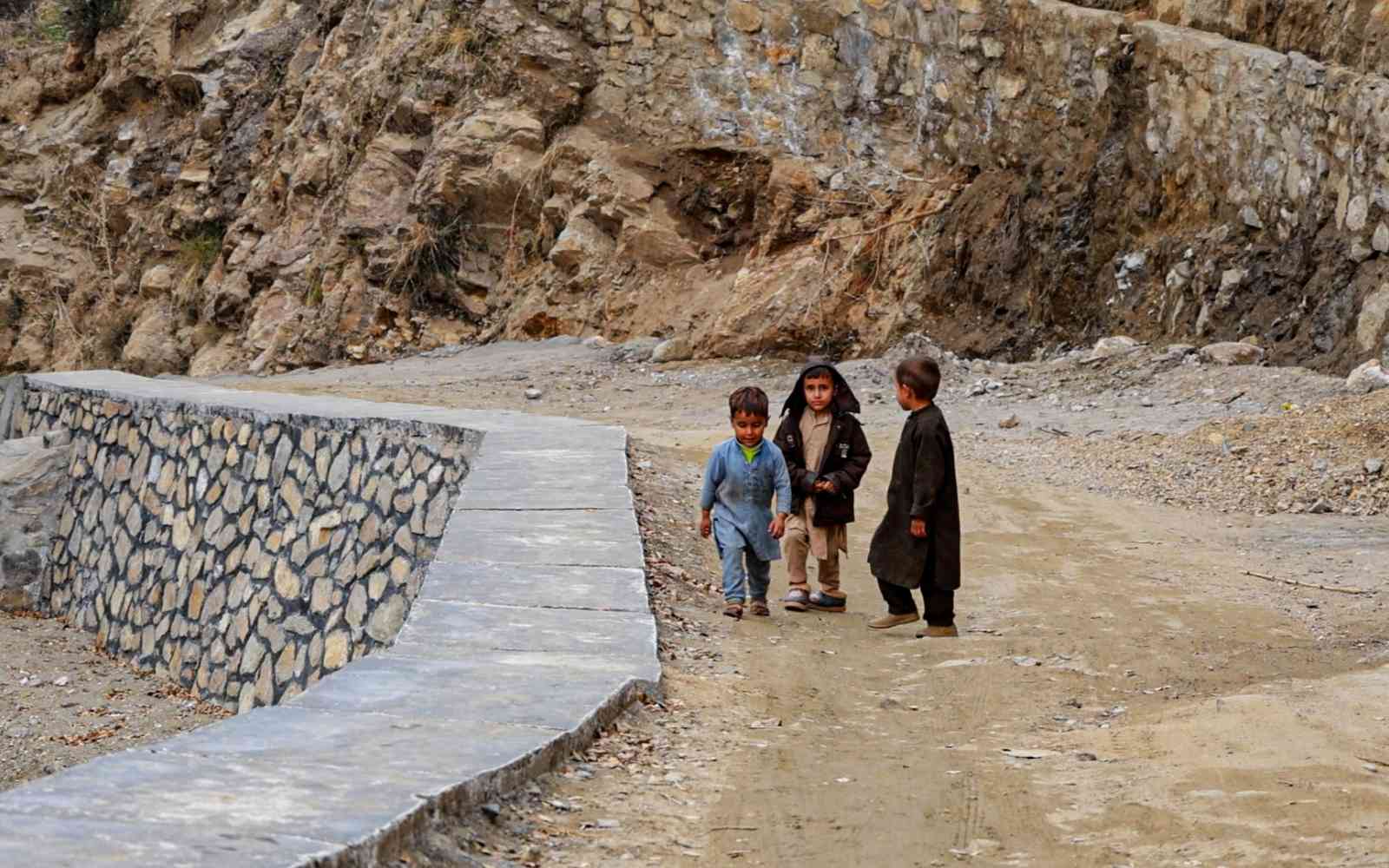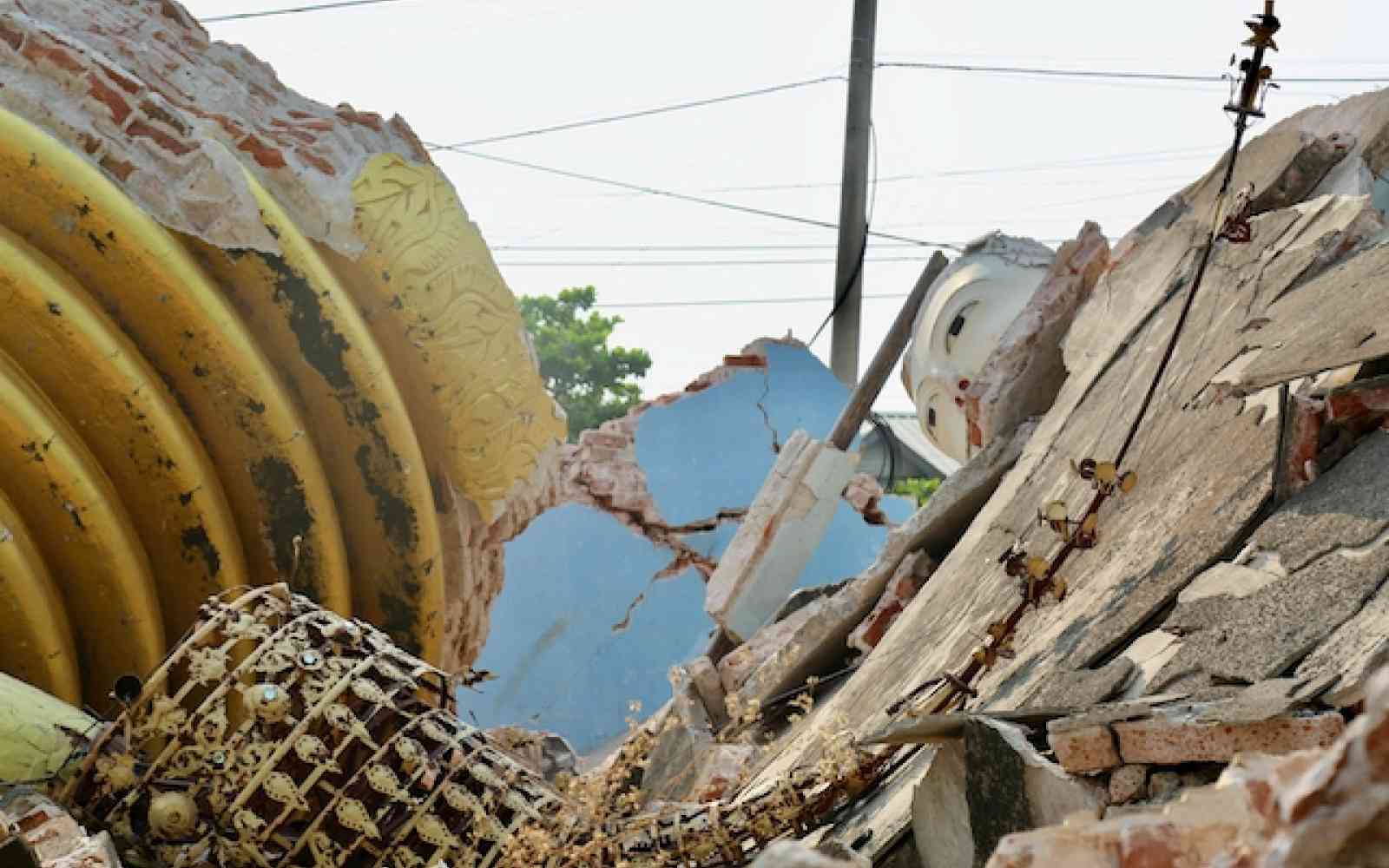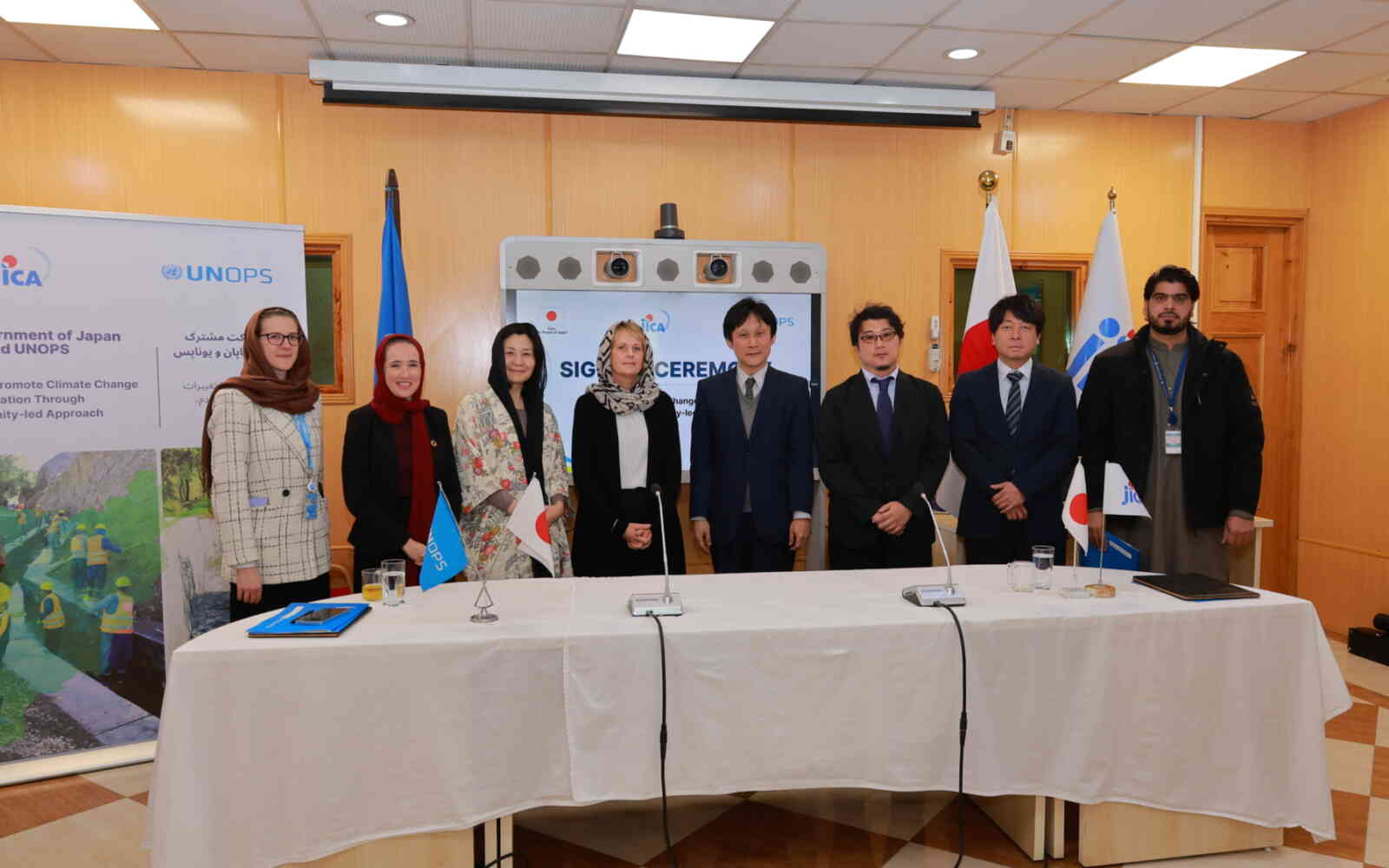The United Nations Office for Project Services (UNOPS)
Roads, health centres and water pumps – changing lives in Myanmar

UNOPS infrastructure projects don’t just improve access to services, markets and clean water – they also help to build the systems that countries need to improve people’s health and livelihoods in the long term.
UNOPS Myanmar is building, restoring and rehabilitating public infrastructure across the country, helping ensure that services reach those most in need.
Repairing roads in Chin State
Chin State is a part of the country particularly difficult to reach and largely underdeveloped. Frequent landslides and floods have had devastating consequences on the State's infrastructure.
After Cyclone Komen in 2015, an estimated 20 percent of all roads in the State (740 km) and 310 bridges required repair and restoration. Without a strong transport network, residents have difficulty accessing markets, schools and health facilities.
UNOPS, with funding from Asian Development Bank, is restoring or reconstructing a large proportion of these damaged roads. In total, 637 km of roads and 237 minor bridges and culverts will undergo repair work.
In cooperation with the Myanmar Department of Rural Development, this project is restoring access to services, while increasing disaster preparedness, community resilience and community safety.
"When we carried out an assessment, villagers told us they were using motorcycles to carry construction materials for schools and other supplies along the road. By restoring the road, we can make it safer and faster for them," said Mohan Kumar Tuladhar, Project Engineer for UNOPS Myanmar.
Improving TB treatment
In Yangon, UNOPS is building a state-of-the-art laboratory for diagnosing tuberculosis, alongside an outpatient department. The laboratory will have a Bio Safety Level 3" rating, which is the second highest level and appropriate for work involving dangerous microbes.
In Mandalay, an outpatient department and caregiver's quarters are serving the north of the country with TB services.
Facilities are managed by the National TB programme, part of the Myanmar Ministry of Health and Sports. Financing comes from the Three Millennium Development Goal Fund (3MDG), which is funded by Australia, Denmark, European Union, Sweden, Switzerland, UK and USA.
Bringing health services to rural areas
UNOPS has built 82 health centres in the country since 2014, bringing health services to some of the hardest-to-reach areas, with a particular focus on maternal, newborn and child health. This has also been financed by 3MDG.
In 2016 alone, 44 facilities were completed and handed over to the Ministry of Health and Sports.

"Before, I had to look after pregnant women in their own houses, which can be unclean and cause infections," said local midwife Daw Rosy Tin.
"Now it's better, and I am available for them 24 hours a day, as I live here as well."
She has delivered six healthy babies since the centre opened in February.
Locations are decided together with the Ministry of Health and Sports, who staff and run the health centres, and local community members.
On-site accommodation ensures staff are available when needed, and solar panels and rainwater tanks provide sustainable light and water.

Using the same designs and processes, 17 more centres are being built by UNOPS with funding from Ooredoo, one of the country's largest telecommunications providers. These designs are also available for future use for the Ministry of Health and Sports.
Regional Public Health Officer, Dr Than Lwin Htun, spoke at the handover of one facility in Sagaing Region: "Having these new rural health centres in areas where the health services were previously not accessible is a wonderful thing indeed! The old health centres didn't have the facilities and equipment like these new ones. I hope they will be maintained for a long time to come."
Improving farmers' livelihoods with pumping and irrigation systems
A three-year project in Sagaing Region will benefit farmers through the rehabilitation and improved management of the pumping, irrigation and drainage systems.
Through the Livelihoods and Food Security Trust Fund (LIFT), the project will support the income of some 1,000 farmers in the Region. These systems are affordable to manage, operate and maintain.
To minimize environmental risks, such as spilled lubricants at the pumping station, operators will be trained and drainage systems upgraded.
Over the long term, investments in management, operation and maintenance will drive movement towards full-user ownership, and the efficient and sustainable use of water.
This includes crop diversification and best practice in irrigated farming systems. It will be used as a model to improve the effectiveness of government pump irrigation projects.
LIFT is a multi-donor trust fund that improves the lives and prospects of rural poor people in Myanmar, with generous contributions from the United Kingdom, European Union, Australia, Denmark, France, Ireland, Italy, Luxembourg, the Netherlands, New Zealand, Switzerland, Sweden, and the United States of America. From the private sector, the Mitsubishi Corporation is a donor.











